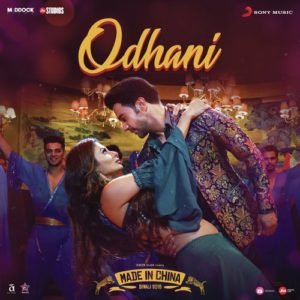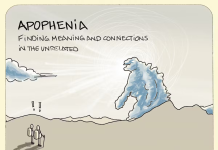Continuing its litigation drive, Saregama India Limited recently dragged Maddock Films Pvt. Ltd, producers of the upcoming Rajkumar Rao and Mouni Roy starrer ‘Made in China’ to the Delhi High Court alleging infringement of their copyright in the song titled ‘Ke Odhni Odhu Odhu Ne Udi Jaye”.
(Link to the Saregama song: here and Made in China song : here]
The facts as appearing in the recent order of the Delhi High Court state that:
The dispute between the parties relates to the song “Ke Odhni Odhu Odhu Ne Udi Jaye” in the defendant’s film ‘Made in China’ which was released on 19th September, 2019. The defendant had earlier applied for a license from the plaintiff and a license fee of ₹8 lakhs was sought by the plaintiff, however the final terms between the parties could not be agreed upon, as according to the plaintiff it insisted that the said license fee was only for the purposes of putting the song in the film and the plaintiff would retain the rest of the rights for commercial exploitation of the underlying work. The right of the commercial exploitation of the underlying work in the song by the plaintiff was not acceptable to the defendant who later took the stand that the plaintiff was not even entitled to the license fee as it did not hold any right in the song or the underlying work.
Interestingly, Sony Music Entertainment India Limited which owns the music rights of the film ‘Made in China’ was not made a party to this suit. However, counsel for Sony Music appeared in the matter and informed the Court that the lyrical works are a folk song in which no one can claim ownership and thus cannot be assigned to anybody, and the underlying work of composition including sound recording of defendant in the song has already been assigned to Sony Music. Thus, they contended that without impleading Sony Music no relief could be sought by the plaintiff.
In view of Sony Music not being impleaded as a party to the suit, the Court refused to grant an ad-interim injunction to Saregama. In the meantime, in view of the stand of the defendant that Saregama has no rights either in the song or the underlying work for the reason that the gramophone company which is the predecessor-in-interest of the plaintiff only received limited rights and the plaintiff is not entitled to any license fee, the Court as an ad-interim measure directed the defendant to furnish a security for a sum of Rs. 25 lakhs with the court. The matter has been listed on November 4, 2019.
Read order here.
Why all these recent cases on recreated versions?
Saregama India Limited, the country’s oldest music label holds the largest repertoire of old sound recordings in the country.
One of the business models of the music labels while giving adaptation rights for making a recreated version of their song is to acquire the rights of the new recreated song and exploit it. This way, the publishing rights of the new song remains with the same label and does not go to another music label.
There are a number of reasons why negotiations could fail between the parties in such deals such as exorbitant price being demanded by the older label, or the producer not wanting to give the rights in the new song to the older label. Such seems to have been the case with this song.
What is Sony Music’s defense in this case?
Sony Music seems to have made the following contentions:
- The lyrics of the original song belong to a folk song and hence in public domain over which no one can claim copyright. To prove this point Sony Music would need to establish the origin of the lyrics of the original song and show that the term of copyright in the same has expired and hence it is in public domain.
- Saregama only has limited rights in the song- this argument could possibly be as most of Saregama’s older agreements were template agreements (like other music labels in that era) granting them only gramophone recording rights for a limited term. There have been conflicting judgements on this issue in relation to such template agreements of older music labels and courts have decided based on various facts and circumstances of each specific case. It would have to be seen how the court interprets the agreement between Saregama and its predecessor in title in this given case.
- Another possible reason for the above argument being taken by Sony Music could be that Saregama must not have established any link document of ownership in the underlying works. In the older days many a times, producers would not sign agreements with authors taking refuge of Supreme Court’s decision in IPRS vs EIMPAA. It would be interesting to see if this point is discussed in this case as to whether the producer would have ownership in the adaptation rights as well if no agreement was entered into with the authors.
The Copyright Amendment Act, 2012 has fortunately rectified several of the issues which used to arise due to such agreements being entered by music labels earlier such as restriction in applying the assignment in future modes and mediums not in existence at the time of assignment or in commercial existence unless specified, new proviso to Section 17, et all.
Image source: here












